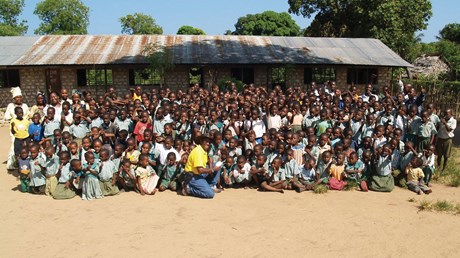While other children’s homes have closed, Mully Children’s Family has continued to care for thousands.

Dickson Mulli had just returned from a trip to the US and was working at his office in Nairobi when the first case of the novel coronavirus entered the country on March 12. Within days, the government ordered schools to shutter and nonessential workers to work from home. Within weeks, roads leading in and out of the city were closed.
While Mulli was concerned for his wife and one-year-old son, he also worried about the other people he was responsible for feeding: 3,500 former street children rescued by his father Charles’s nonprofit and hundreds of employees.
“When you have all these children and there’s a pandemic, and the roads and the markets are closed, what do you eat, and what do you do?” Mulli said. “During a pandemic, it’s back to basics. It doesn’t matter what kind of car you drive—you need food, you need peace of mind, you need good health—and of course, Jesus.”
Around the world, many children’s homes have been forced to close—for the best, some argue—since they could not guarantee the children’s health or care during COVID-19. But Mully Children’s Family (MCF) has not only been able to house, feed, and educate the hundreds of children in its care, it has also kept them safe and counseled them through the anxieties of an uncertain year.
Mulli—also spelled Mully in Kenya—estimates that in over 31 years, around 23,000 children have come through MCF’s various residential facilities. The organization has become a darling within some Western church circles, a model tale about a Kenyan man investing his life to help Kenyan youth. MCF has in recent years become more self-sustainable and built partnerships with Western ...
from Christianity Today Magazine
via




.gif)

.gif)
.gif)
